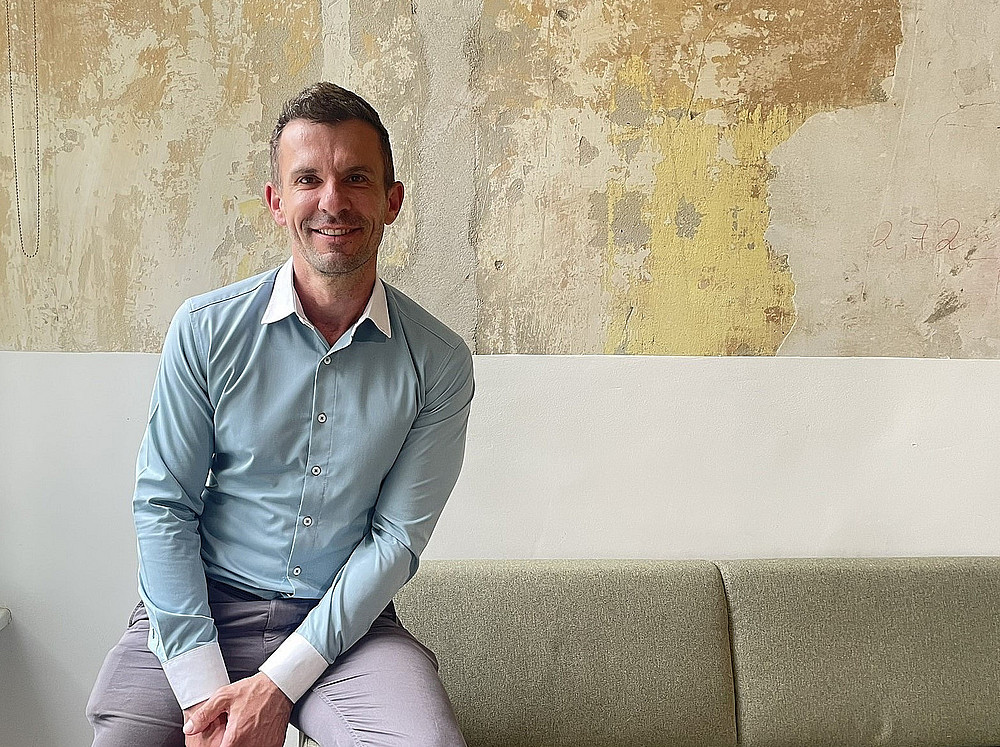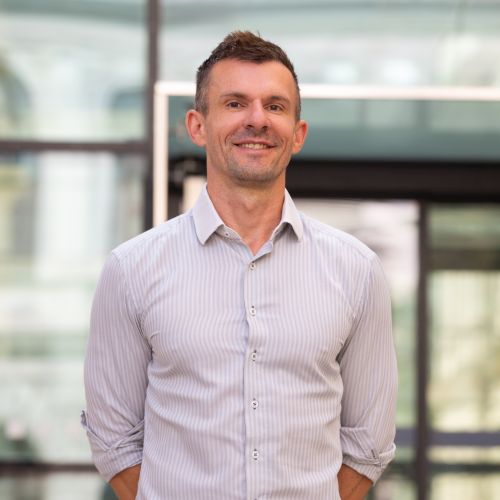"It's important to me that students can recognise and refute fake news"

Not following the advice of the Minister of Education at the time - this is exactly what Stephan Schicker brought to specialised didactics research. He is a member of the language cluster at FUTURE EDUCATION.
"Please don't study to be a teacher. And above all, please don't study German, English and history!" This message was written by the then Minister of Education Elisabeth Gehrer in a letter to Stephan Schicker's A-level class. He did not follow her advice. After his A-levels, he began to study precisely these subjects: German and history, and later also English. "I always wanted to be a teacher," he says. During his one-year teaching internship at the model school in Graz, he came into close contact with innovative didactic approaches, which sparked his interest in pedagogical and didactic issues and their implementation at school.
But for the time being, things turned out as the Minister of Education had predicted: he was offered teaching positions in other federal states, but not in Styria. So he continued to invest in his education, completing a university course in "German as a foreign language/German as a second language". An internship abroad at the University of Havana took him to Cuba. "I would recommend that all students have an experience like this before they go to school," he emphasises, regretting that fewer and fewer students are taking advantage of this opportunity.
This was followed by a part-time position both as a teacher and as a university assistant at the University of Graz, while he pursued his doctorate on the subject of argumentation and self-assessment. What drove him to delve further into research was his desire to deal with didactic issues on a more scientific basis. The change in perspective from practical questions to a theoretical foundation was particularly exciting for him. And the move paid off: Stephan Schicker was awarded the Viktor Obendrauf Prize for his dissertation in 2020.
As his current full-time job as a Senior Scientist, which he has held since 2021, demands his full attention, he is taking a leave of absence from teaching from next year. "It's incredibly difficult for me to say goodbye. I've never had such good pupils who were so keen to learn. Being a teacher is incredibly rewarding!" However, the broader impact that his position in teacher training has given him has now drawn him to the University of Graz.
As part of his "Fictional Science" project, he is currently looking at how students can be enabled to recognise and refute fake news. "This is a very topical issue." His interest in this stems from his own observations in his own school lessons and from current perceptions of socially relevant topics. The research he conducted as part of the project was deliberately carried out at secondary schools. "It is very important to me in this topic to enable all pupils - and this socially relevant target group in particular - to recognise misinformation. At secondary schools, a large proportion of pupils take a different educational path after the eighth grade. At grammar school, you still have the opportunity to teach these skills in the sixth form."
Would he advise young people to pursue a career in research? "If someone is passionate about something and interested in it, then it's a wonderful profession."

MMag.phil. PhD Stephan Schicker
+43 316 380 - 8391
Fachdidaktikzentrum Deutsch als Zweitsprache & Sprachliche Bildung
Donnerstag 10:00 - 11:00 (Voranmeldung per Mail erforderlich)
https://online.uni-graz.at/kfu_online/wbforschungsportal.cbshowportal?pPersonNr=104717